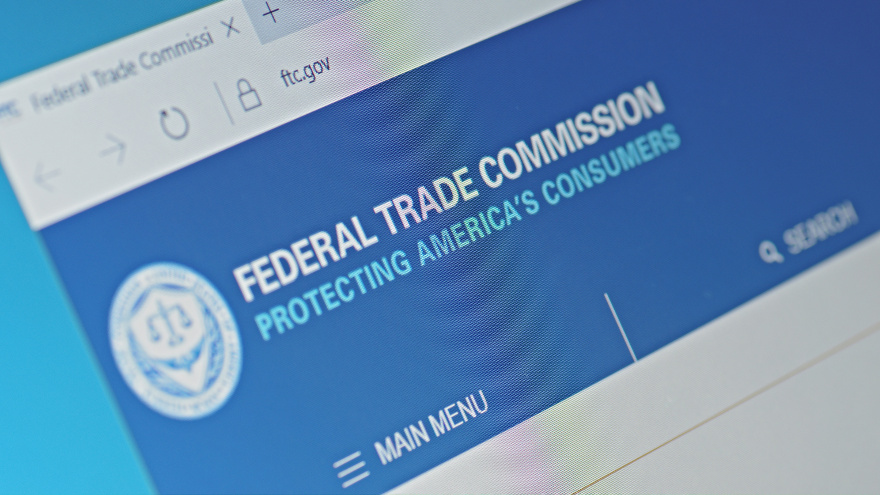Two technology names in the compliance space now are within the same organization.
On Tuesday, KPA, a software-as-a-service and services provider for compliance and workforce management solutions, announced its acquisition of Compli, a provider of HR business process automation solutions.
A news release did not contain details about financial terms of the transaction.
The company did note this transaction accelerates KPA’s strategy of delivering a compliance, workforce management and business process automation platform to the middle market.
Compli’s software can reduce the cost and complexity of HR and compliance management processes by automating document training and forms routing, completion and collection while providing visibility through real-time reporting and intuitive dashboards.
Compli’s software can help organizations meet workforce corporate compliance demands by automating and integrating policy review and acceptance, online training and forms completion.
Combining Compli’s capabilities with KPA’s Human Resource Information System (HRIS), Applicant Tracking System (ATS), training and on-demand HR advice enhances KPA’s strategy to expand its comprehensive human capital management solution for small and middle market companies.
“People are a company’s greatest asset but also the source of significant expense and potential risk. It’s critical for high-performance companies to optimize their workforce efficiency and manage risk through effective recruiting, onboarding, training and performance management,” said Vane Clayton, chief executive officer of KPA.
“KPA’s current ATS, HRIS, online training and HR knowledge resources combined with Compli’s highly complementary workflow software provides the tools and expertise needed to streamline workforce management and reduce HR compliance risk across the entire organization,” Clayton went on to say.
With the federal government shutdown clash involving President Trump and Congressional leaders already lasting longer than any impasse in history, policymakers, banking leaders and finance companies are all collaborating to help impacted federal workers who are not being paid their wages.
Following a statement by five federal and state financial regulators, Consumer Bankers Association president and chief executive Richard Hunt shared strategy similar to what’s been offered by an array of finance companies who have contract holders with interrupted incomes. It is estimated that more than 800,000 workers are not getting paid during the shutdown.
First, here is what policymakers said in a joint statement that included Consumer Financial Protection Bureau, the Federal Deposit Insurance Corp., the Office of the Comptroller of the Currency, the Federal Reserve Board and the Conference of State Bank Supervisors.
“While the effects of the federal government shutdown on individuals should be temporary, affected borrowers may face a temporary hardship in making payments on debts such as mortgages, student loans, car loans, business loans or credit cards,” the policymakers said. “As they have in prior shutdowns, the agencies encourage financial institutions to consider prudent efforts to modify terms on existing loans or extend new credit to help affected borrowers.
“Prudent workout arrangements that are consistent with safe-and-sound lending practices are generally in the long-term best interest of the financial institution, the borrower and the economy. Such efforts should not be subject to examiner criticism,” they continued.
“Consumers affected by the government shutdown are encouraged to contact their lenders immediately should they encounter financial strain,” they went on to say.
Hunt replied to regulators outlining the assistance programs banks are proactively offering customers impacted by the shutdown. Hunt’s letter that’s available here also thanked regulators for offering guidance similar to that issued during previous shutdowns.
“Consumer Bankers Association member institutions work with customers facing hardships — whether manmade or natural — every day. Banks are working with customers on a one-on-one basis as the partial government shutdown continues and federal employees, through no fault of their own, begin missing paychecks and small businesses are not able to access Small Business Administration loans,” Hunt wrote.
“We know federal employees had no role in this shutdown, neither did banks. As with so many other issues ranging from wildfires, floods and hurricanes to data breaches at retail giants, banks are the ones on the front lines helping make it right for their customers,” he went on to state.
Hunt also appreciated the regulatory guidance, noting it “will enable banks to do more for their customers impacted by this partial shutdown.”
Since the partial shutdown began on Dec. 22, banks have offered furloughed federal workers a variety of assistance, including:
— Deferments
— Temporary hardship programs
— Automatically waiving or refunding overdraft and monthly service fees
— Increasing overdraft limits
— Offering access to certificates of deposit without penalty
— Providing loan payment assistance
— Suspending collection calls
— Streamlining unsecured loans
Along with banks, finance companies are also helping impacted federal workers who have vehicle installment contracts.
For example, Hyundai has relaunched its Assurance program like the automaker did in 2013. Under the plan, the OEM will extend all Hyundai Capital auto loan and lease payments for 30 days for current Hyundai owners who are federal government employees furloughed during the shutdown.
“We recognize that there are many federal employees who are Hyundai owners and are not receiving their normal pay check," said Brian Smith, chief operating officer of Hyundai Motor America. “Hyundai is a brand that aims to make things better for its customers, and this is our way of showing customers ‘We have your back’ during this uncertain time.”
Meanwhile, other captives such as GM Financial and Ford Motor Credit each have alerts at the top of their websites, directing furloughed federal workers who have been impacted to contact them as soon as possible to make payment arrangements.
When the shutdown will end probabaly can’t be predicted based on what been shared via Twitter.
Speaker of the House Nancy Pelosi posted late on Monday, “It’s day 24 of the #TrumpShutdown. 800,000 Americans are losing paychecks. The health & safety of countless more are in jeopardy.”
And Trump retorted on the social media platform on Tuesday morning, “Why is Nancy Pelosi getting paid when people who are working are not?”
The roster of partners on Hudson Cook’s legal team became larger this week.
The firm announced attorneys Anastasia Caton and Erica Kramer have been promoted to equity partners of the firm, effective Jan. 1. With their addition, 18 of the firm’s 40 equity partners are female.
Caton, a resident in the firm’s Washington, D.C. office, focuses her practice on various aspects of compliance with state and federal servicing and debt collection laws, and speaks and writes frequently on the topics of servicing and debt collection. She also assists clients in responding to federal agency matters from the Consumer Financial Protection Bureau, Federal Trade Commission and the Department of Justice as well as state attorneys general investigations.
As an active member of the American Bar Association’s Consumer Financial Services Committee, Caton currently serves as the co-vice chair of the young lawyers subcommittee.
Kramer, a resident in the firm’s Tennessee office, focuses her practice on various consumer financial services and regulatory compliance matters, and frequently counsels clients on issues related to the Military Lending Act, the Servicemembers Civil Relief Act, and the accessibility of web content under the Americans with Disabilities Act. She recently co-authored several articles on how the Military Lending Act continues to affect the auto finance industry.
“Anastasia and Erica are skilled attorneys who have consistently demonstrated the integrity and values we hold dear at Hudson Cook,” firm chairman Michael Benoit said. “Their commitment to understanding the needs of our clients and supporting them with high quality legal services, as well as their willingness to support the needs of their colleagues, is emblematic of the firm’s culture.
“We look forward to their contributions to the firm and to the financial services community for many years to come,” Benoit went on to say.
With its annual Vehicle Finance Conference coming later this month, the American Financial Services Association (AFSA) announced a trio of promotions reflecting expanded expertise and increased responsibilities in both its federal and state government policy functions.
The moves AFSA made this week include:
— Celia Winslow, formerly director of legal and regulatory affairs, becomes the association’s new vice president of legal and regulatory affairs. She will work with AFSA’s members to devise and implement a comprehensive and proactive policy regarding federal regulations, with an emphasis on the Consumer Financial Protection Bureau.
On the legal side, the association explained Winslow manages AFSA’s amicus (friend-of-the-court) brief efforts in district, state, and federal courts. Additionally, she is the staff liaison to AFSA’s Law Committee.
Winslow joined AFSA in 2006.
— Susan Sullivan, formerly manager of congressional affairs, now is AFSA’s new director of congressional and political affairs. In this role, she builds and maintains relationships with members of Congress and congressional staff and implements AFSA’s federal advocacy agenda.
In addition, the association highlighted Sullivan oversee AFSA's Political Action Committee (AFSAPAC). She also serves as staff liaison to AFSA's Operations Committee.
Sullivan joined the association in 2010.
— Matt Kownacki now serves as AFSA’s new director of state research and policy, tracking and analyzing state and local regulatory and legislative policy. He issues comment letters to state legislators and agencies on issues affecting AFSA member companies.
Additionally, the association mentioned Kownacki drafts and edits resources available to AFSA members, including 50-state surveys, talking points, issue briefs, and white papers. Kownacki also provides regular updates to State Government Affairs Committee members on current state legislation.
Kownacki joined AFSA in 2015.
AFSA will welcome the industry for its annual Vehicle Finance Conference, which begins on Jan. 22 at the Hilton Union Square Hotel in San Francisco. The conference agenda and more details are available at vehicle.afsaonline.org.
Two recovery industry providers aligned before 2018 to benefit their finance company clients.
MBSi Corp., a member of the Automotive Intelligence Council and provider of repossession assignment software and vendor compliance solutions, and Servicing Solutions, an organization specializing in primary and back-up servicing, announced a partnership to provide a seamless asset recovery process for auto finance companies.
“Partnering with MBSi will enhance our ability to recover our clients’ assets,” said Cesar Guzman, vice president of operations at Servicing Solutions. “Their compliance-enabled assignment management platform is an example of the type of cutting-edge technologies we are always on the lookout for, so we are very excited about how this partnership will benefit our clients.”
MBSi president Cort DeHart added, “We are excited to integrate with an industry-leading service provider like Servicing Solutions who delivers efficiencies for lenders,” said, of.
“Servicing Solutions has been easy to work with and we look forward to providing a seamless process to the collections and recovery industry by delivering assignments to qualified asset recovery professionals in MBSi’s assignment management ecosystem,” DeHart went on to say.
DeHart and MBSi will be part of the Automotive Intelligence Council hosting its first press conference during this month’s convention orchestrated by the National Automobile Dealers Association. MBSi will be joined by KAR Auction Services and Maryann Keller and Advisors.
More details about the Automotive Intelligence Council can be found here.
With less than a month remaining in the calendar year, tax matters are top of mind at the National Automobile Dealers Association.
NADA recapped that the IRS recently proposed a rule on the additional first year depreciation deduction provision that was included in the Tax Cuts and Jobs Act of 2017 (TCJA). In responsive comments that were prepared on NADA’s behalf by Crowe, NADA explained that the association raised several issues requiring clarification.
NADA also urged the IRS to allow dealers whose combined floor plan and business interest is under the 30 percent cap to take advantage of the bonus depreciation provisions provided in the TCJA.
Those complete assertions are available here.
Crowe further emphasized these points on NADA’s behalf in oral testimony that was presented to the IRS just after Thanksgiving. That testimony is available here.
The Fair Debt Collection Practices Act prohibits debt collectors from engaging in abusive debt collection practices. To be liable under the Act, however, the defendant must be a debt collector. And there are two ways that a defendant can qualify as a debt collector under the act — the defendant’s “principal (business) purpose” is debt collection or the defendant regularly attempts to collect debts “owed or due another.” 15 U.S.C. § 1692.
Last summer, the Supreme Court examined what it means to regularly collect a debt “owed or due another,” holding that defendants who seek to collect debts that they own (even if the debt is in default when purchased) are not subject to liability under the act. See Henson v. Santander Consumer USA Inc., 137 S. Ct. 1718 (2017). The Court declined to discuss when a defendant’s principal business purpose amounts to debt collection making it subject to the Act.
That issue, however, recently confronted the Third Circuit, which had to decide how to apply the “principal purpose” definition of debt collector — the first federal court of appeals to do so since the Supreme Court’s ruling last summer in Henson.
The Third Circuit addressed the issue in Tepper v. Amos Fin., LLC, 898 F.3d 364, 368 (3d Cir. 2018). There, the plaintiffs (the Teppers) received a home equity loan from NOVA Bank. The FDIC closed NOVA Bank, took over as receiver, and sold the Teppers’ defaulted loan to Amos Financial. After purchasing the Teppers’ loan, Amos attempted to collect the debt and ultimately foreclosed. The Teppers then sued, claiming that Amos violated the Act by attempting to collect more than they owed and making false representations about the foreclosure sale, among other things. Amos, relying on the Supreme Court’s decision in Henson, argued that it was not a debt collector because it owned the Teppers’ loan.
The district court rejected the argument, holding that even though Amos was collecting a debt it owned, Amos was still a debt collector because its “principal [business] purpose” was debt collection. Amos admitted to the district court that it was “(n)ot a financial institution or lender, (and) its sole business (wa)s purchasing debts entered into by third parties and attempting to collect them.” Id. at 369. After a one-day bench trial, the district court found that Amos had violated the Act and awarded the Teppers statutory damages and attorneys’ fees.
Amos appealed, arguing again that, under the Supreme Court’s decision in Henson, it was not a debt collector subject to the Act because it owned the Teppers’ loan. The Third Circuit rejected Amos’s argument, reasoning that because Amos’s sole business was collecting debts that it had purchased, it was a debt collector. And, said the Third Circuit, “[a]sking if Amos is a debt collector is thus akin to asking if Popeye is a sailor. He’s no cowboy.” Id. at 370-71.
According to the Third Circuit, “an entity whose principal purpose of business is the collection of any debts is a debt collector regardless whether the entity owns the debts it collects.” Id. (emphasis added). In other words, simply owning the debt will not protect a defendant from liability under the Act if the defendant’s principal business purpose is debt collection.
So, if a plaintiff can sufficiently plead in her complaint that a defendant’s principal business purpose is debt collection, whether that is actually so is a fact question that will need to be fleshed out in discovery. See, e.g., Hordge v. First Nat’l Collection Bureau, Inc., No. 4:15-CV-1695, 2018 WL 3741979, at *5 (S.D. Tex. Aug. 7, 2018) (holding that whether the defendant’s principal purpose is debt collection is a “disputed fact question” notwithstanding that the defendant argued that its business was “holding debts, not collecting debts”); Yarid v. Ocwen Loan Serv., LLC, No. 3:17-CV-484, 2018 WL 3631883, at *5 (E.D. Va. July 31, 2018) (“[D]eciding whether an entity qualifies as a debt collector involves a fact-intensive process.”).
As a result, consumer plaintiffs are likely to seize on the Third Circuit’s reasoning in Tepper to avoid a summary disposal of their cases when the defendant owns the subject debt. And courts will likely soon be faced with having to decide exactly when some debt collection by a defendant is enough to qualify as a defendant’s principal purpose. Indeed, the Third Circuit already has before it a case raising this very issue where the plaintiff argued at oral argument that the defendant’s principal business purpose is debt collection because at least 50 percent of its business involves debt collection. See Barbato v. Greystone Alliance, LLC, 2017 WL 5496047, No. 3:13-2748 (M.D. Penn. Nov. 16, 2017) (holding that the defendant is a debt collector under the “principal purpose” definition because it purchased charged-off receivables and 90-95 percent of its accounts were such receivables).
Jade Sipes is a litigation associate in the Birmingham, Ala., office of Baker Donelson. Sipes helps defend banks and other lenders, servicers and title insurers against charges of liability and fraud, wrongful foreclosure claims and other matters. She can be reached at [email protected].
FNI Inc. president David Bafumo spent part of his Thanksgiving holiday dissecting the potential pitfalls that resulted in Santander Consumer USA reaching a settlement with the Consumer Financial Protection Bureau over a GAP product.
Two days before the country carved turkeys and passed around pie, the CFPB described a consent order detailing how the bureau found Santander violated the Consumer Financial Protection Act of 2010 by not properly describing the benefits and limitations of its S-GUARD GAP product, which the finance company offered as an add-on to its auto finance products.
The regulator also stated SCUSA failed to disclose the impact properly on consumers of obtaining a contract extension, including by not clearly and prominently disclosing that the additional interest accrued during the extension period would be paid before any payments to principal when the consumer resumed making payments.
Under the terms of the consent order, the CFPB said Santander must, among other provisions, provide approximately $9.29 million in restitution to certain consumers who purchased the add-on product, clearly and prominently disclose the terms of its contract extensions and the add-on product, and pay a $2.5 million civil money penalty.
Meanwhile, Bafumo did not doze into a turkey-induced nap this past week. Instead, he examined the consent order that’s available here and offered his analysis in an attempt to help dealerships and finance companies not have to fork over millions to their customers and the bureau.
“The bureau hangs their enforcement hat on just one element of the S-Guard GAP program, basing the entire ‘unfair and deceptive’ finding on a 125 percent loan-to-value benefit limitation found in the S-Guard consumer contract,” Bafumo wrote in his latest Take Action newsletter that he shared with SubPrime Auto Finance News.
“The cap means that no GAP benefit coverage is provided for the amounts financed over 125 percent — potentially leaving those customers partially unprotected,” he continued in the newsletter available here.
“In the bureau’s opinion, the limitation makes the S-Guard GAP marketing materials deceptive, as they do not specify the limitation and instead, make multiple references to ‘true full coverage,’ implying that a customer’s complete deficiency balance would be covered by the GAP contract benefits," he went on to say.
Bafumo explained that the CFPB first delved into regulating GAP coverage in 2012 and 2013. As a result, he noted that many providers modified their marketing material. Providers often changed the wording from, “In the event of a total loss, GAP pays the difference in what you owe on your loan and what your insurance company settles for,” instead to “GAP helps pay the difference in what you owe…”
Bafumo emphasized that this modification recognized there are exclusions to coverage and to imply the possibility of a balance still due.
“Missing this well known, industry-wide adjustment in GAP marketing was a mistake by Santander’s due diligence team and by the S-Guard GAP administrator who provided both the product and the marketing materials,” he said.
Bafumo closed his latest update by stressing some of the points and strategy offered via his firm that’s online here. He included:
- Document your product vendor and marketing due diligence.
- Establish a standardized, compliant marketing process.
- Implement a product-specific consumer disclosure form.
- Require product vendor agreement terms that protect you.
The Federal Trade Commission called for a balanced approach that protects both consumer privacy and innovation in a comment submitted to the Department of Commerce’s National Telecommunications and Information Administration (NTIA) as part of that agency’s consumer privacy proceeding.
In its comment to NTIA, the FTC emphasized its extensive experience in protecting consumer privacy and fostering innovation. The regulator reiterated its main tasks in this sphere, including:
— Collecting information from children online without parental consent
— Deceiving consumers about collection, use, and/or disclosure of their financial, health, video, or other personal information
— Making false promises about compliance with the EU-U.S. Privacy Shield (and the predecessor U.S.-EU Safe Harbor)
— Deceptively tracking consumers online
— Disclosing highly sensitive, private consumer data to unauthorized third parties
— Publicly posting private data online without consumers’ knowledge or consent
— Installing spyware or other malware on consumers’ computers
— Failing to provide reasonable security for consumer data, including children’s information
— Spamming and defrauding consumers
— Making harassing calls about phantom debt and leaving threatening voicemails about debt collection
— Failing to comply with legal requirements when generating automated data used to deny housing to applicants
— Violating Do Not Call and other telemarketing rules
“These enforcement actions send an important message: the FTC holds companies accountable for their information practices,” officials said in their comment to the NTIA that’s available here.
“The FTC is uniquely situated to balance consumers’ interests in privacy, innovation and competition, according to the comment,” the regulator continued. “In particular, the FTC’s dual mission of protecting competition and consumer protection gives the commission a deep understanding of the benefits and costs to consumers associated with the use of their data.
In response to some of the specific topics raised by NTIA, the comment also reiterated the FTC’s commitment to data security. The comment summarized the importance of companies’ making accurate disclosures about privacy.
The FTC went on to maintain a call for a balanced approach to choice, where the level of control would depend on consumer preferences, context and risk. Officials noted that they should continue to be the primary enforcer of laws related to information flows in the marketplace, whether under the existing or a new privacy and security framework.
The regulator added that it will be examining its current authority related to privacy and data security as part of its series of hearings on Competition and Consumer Protection in the 21st Century.
“Data security concerns are an important part of the privacy debate and, in light of the issues described above, the FTC continues its longstanding call that Congress consider enacting legislation that clarifies the FTC’s authority and the rules relating to data security and breach notification,” officials said. “The FTC also understands that both Congress and the administration are considering federal privacy legislation, and the commission strongly supports those efforts.
“Any legislation should balance consumers’ legitimate concerns about the protections afforded to the collection, use, and sharing of their data with business’ need for clear rules of the road, consumers’ demand for data-driven products and services and the importance of flexible frameworks that foster innovation,” the FTC continued. “Should Congress decide to pursue such legislation or otherwise expand the FTC’s enforcement authority, the commission is prepared to share its expertise and assist with formulating appropriate legislation.
“That said, any such process will involve difficult value judgements that are appropriately left to Congress,” officials went on to say. “Ultimately, no matter the specific laws Congress enacts in the privacy or data security area, the commission commits to using its extensive expertise and experience to enforce them vigorously, consistent with its ongoing and bipartisan emphasis on privacy and security enforcement.”
AGORA Data is responding to the need for accurate information involving seasoned vehicle installment contracts.
On Monday, the secondary loan marketplace announced what that company believes is the release of the first-ever loan validation report for seasoned loans. AGORA’s proprietary technology can enable dealer and finance companies to avoid compliance issues with the Truth in Lending Act (Regulation Z), by assessing in real-time any issues with the terms of a loan, either at the portfolio or individual loan level.
AGORA indicated this analysis can include assessment of the contact’s annual percentage rate, finance charges, principal balance, total of payments, unearned interest and gross balance.
AGORA chief executive officer Steve Burke cautioned that violation of Regulation Z can lead to significant penalties and other legal issues.
“Before starting AGORA, I bought as principal, billions of dollars worth of notes from dealers, finance companies, banks and credit unions, and I cannot remember a loan portfolio that did not have problems we identified at the time of purchase,” Burke said.
“When loans are originated and boarded into a servicing system, they are most likely compliant, however, over time, payments get misapplied, side notes are created, late charges are misapplied and many more things that will take what was a compliant loan and make it no longer compliant,” he continued.
The new validation report by AGORA gives you the tools to recognize this real-time,” Burke went on to say.
Before AGORA, Burke insisted that dealers and finance companies would only find out they have a loan level compliance issue if a regulator, buyer or plaintiff attorney identified the problem. By that point, Burke pointed out the dealer or finance company is at risk of losing money, tarnishing their reputation and potentially facing serious legal ramifications.
“By ensuring ongoing compliance with the Truth in Lending Act (Regulation Z), AGORA is keeping you safe,” the company added.
Today AGORA is providing this loan validation tool for free, with no obligation, as well as loan stratifications, data security, data integrity, DMS API integrations, cash flow analysis and much more.
To take advantage of these tools, visit AGORA at www.agoradata.com and sign up for a free account.












